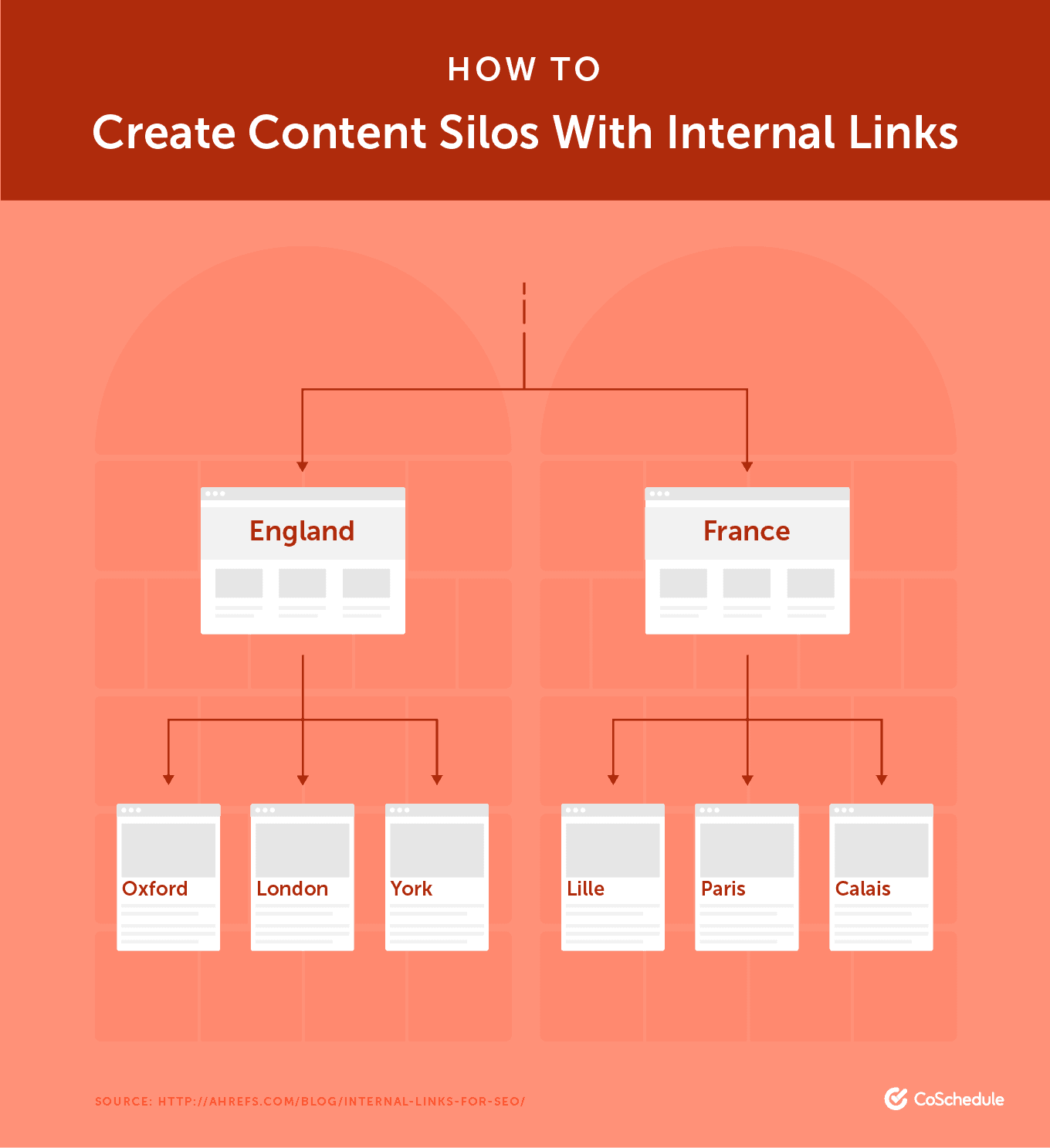Digital marketers talk about SEO all the time. This might give the impression that there’s only one type of SEO. But when it comes to large companies with complex websites, a specialised form of SEO called Enterprise SEO is needed.
What is SEO?
Most people are familiar with SEO; the process of getting your web pages served up to search engine users by understanding how search engines crawl, index, and rank your sites and producing content, and designing websites, to maximise the chance of this happening.
The majority of website traffic comes from user queries in search engines, making Search Engine Optimisation (SEO) a crucial way to get exposure for your brand and drive sales.
What is Enterprise SEO?
SEO has applicable principles that can be applied to any content hosted on the web, from small bloggers to YouTubers, Etsy artisans to ecommerce store owners. But when it comes to large commercial websites, extra special attention is needed to crack the SEO puzzle. This is where the practice of Enterprise SEO comes into play. It’s SEO marketing on an industrial scale.
SEO at scale
Research shows that 65% of enterprises spend anything from $5000 to upwards of $20000 each month on enterprise SEO. Most websites have a single web developer and a handful of people creating and managing content. But large corporations run websites on an extremely large scale. They are run in a very hierarchical way, and involve complex bureaucracy as each web page is a vital commercial asset.
Why do enterprises spend so much on SEO?
The reason enterprises spend so much on SEO is because they often have many web pages, in the many thousands, or even millions (think of sites like Ebay or Netflix) and it’s extremely important for them all to get ranked. Every page that doesn’t rank is a missed opportunity for revenue generation.
Cross-company buy-in for Enterprise SEO
Running an enterprise website involves the close cooperation and buy-in of multiple departments across a business. When applying SEO to enterprise websites buy-in is often required at the C-suite level. The costs can be high and SEO is poorly understood at an executive level at the best of times.
To implement effective enterprise SEO an overarching SEO strategy first needs to be agreed, and then processes need to be introduced that can help deliver this strategy across multiple departments involved in the website management process.
Each department will need to know how to apply Enterprise SEO in a way that is relevant to their individual area.
How to track Enterprise SEO
All SEO requires appropriate tracking to test effectiveness, and make changes to realise SEO opportunities or improve performance. It’s vital that Enterprise SEO strategies outline a set of KPIs (key performance indicators) to track how successful your SEO campaigns are, and make necessary adjustments.
Optimising crawlability and user experience
There are two fundamental aspects to SEO. The first is making your website and associated pages as easily crawlable as possible. The second is to design the best possible user experience.
Search engines work by sending bots to read, or “crawl”, through your site determining which pages to index in order to serve them following relevant search queries. This is a very technical process, and best practices that need to be implemented on a web development level to work.
Whilst optimising for crawlability is a technical process, optimising user experience (UX) involves understanding elements of web design, technical SEO, and also understanding the way people read and interact with websites. Factors like page load speed and mobile-friendliness are crucial, as anyone who’s bought products via mobile will know (Google knows this too, and ranks content accordingly).
The average small business website may have anything from 5 to 100 web pages. In contrast, a large business like Netflix has 1.62 million web pages, according to a scan done using sitechecker.pro.
To catch all these potential issues, large scale website audits are required as part of your Enterprise SEO strategy.
Site structure and Enterprise SEO
Another big component of Enterprise SEO is website structure.
For large corporate websites, site structure needs to be highly logical, so that a user can easily navigate through it, and so that crawlers can easily find their way around it. It also needs to be easy for multiple website managers to be able to organise website management and content creation in an efficient way.
Internal linking
Internal linking is very important to get right for Enterprise SEO. That’s because it’s a key way that search engine crawlers index your website.
This screenshot from link-assistant.com shows all the pages in a site represented by dots. The dots with connected lines are pages that all link to each other.

If these pages link together in a random way the crawling of the site will be incomplete and the user experience will be fractured.
Large sites often need to be restructured so that related pages are linked to each other in a logical way. These are sometimes referred to as “content hubs”, and look a bit like this:

These interlinked pages are also sometimes referred to as ‘content silos’.
As part of your Enterprise SEO strategy it may become necessary to redesign your site structure in a much more logical way.
This all sounds very complicated, why bother?
Enterprise SEO may seem very complicated, but it’s absolutely worth it for big businesses, especially if they work with partners who have experience with Enterprise SEO (more on how Skellig can help you later). It’s worth remembering that large websites have a major SEO advantage over smaller ones.
Websites with 1000 web pages get 9.5x more traffic on average than sites with under 51 pages, according to Hubspot. But to do this their SEO needs to be up to scratch. And with lots of pages, things like making sure your pages are built and SEO’d in a consistent way, and that there aren’t lots of page duplicates weighing down your SEO need to be taken into account.
Keywords and Enterprise SEO
Many businesses may only have a handful of keywords that they want to rank for. But when it comes to large websites they can often have hundreds or thousands of keywords to rank for.
Keyword research needs to be executed on a large scale, using SEO research tools that are up to the job. Often, multiple research tools will be needed, and an in-depth knowledge of SEO best practices and implementation is necessary.
Keyword mapping
Keywords need to be mapped to the right pages. The danger with enterprise sites is if pages get served up that aren’t what the user is looking for. For example, if a term used to rank frequently asked questions appears on a product page the end user may be frustrated with this result and quickly leave the page, hurting it’s SERP (search engine results page) rankings.
Dynamic optimization for enterprise sites
As we’ve said before, Enterprise SEO is normal SEO but on an industrial scale.
This means lots of time and effort is required to do work that smaller sites would normally do manually. This is where processes like dynamic optimisation come in. Dynamic optimisation uses templates to help speed up and standardise the adding of standard elements like page titles, sub-headings, images, HTML markup, meta tags, and so on.
Page duplication and thin content
Although duplicate pages don’t hurt your ranking as some people believe, it can still be a problem if the wrong page gets indexed and ranked. You might have two identical pages of content but one is your landing page with an optimised url. Because there’s two pages with the same content, a robot may index the wrong page. The larger your website is the more problems like this happen.
It’s a similar story with “thin” content; this is content that doesn’t have enough content to rank properly. Some thin pages can be expanded into higher value content, but some you may not want to be indexed at all. So enterprise SEO is concerned with what you don’t want to rank, as well as what you do want to rank.
The Enterprise SEO landscape is always changing
It’s true that SEO in general is always changing, but in many ways Enterprise SEO is at the cutting edge of these changes. When mass consumer behaviours start to change enterprise sites need to keep ahead of the curve.
Voice and visual search
For example, the rise of voice search may not be a huge concern for a lifestyle blogger, but it’s a game-changing deal when it comes to a brand like Wish who are constantly trying to compete with big hitters like Amazon and Ebay.
As another example, with the rise of visual search via tools like Google Lens it becomes important for ecommerce brands to get their images ranked, by doing things like creating image sitemaps, using structured data, and making effective use of image alt tags. Think how many images are on a site like Ebay and you start to realise why Enterprise SEO is a very unique form of SEO, one that it’s important for large brands to focus on.
Influencer marketing and Enterprise SEO
Another piece of the Enterprise SEO puzzle is the relationship between enterprise sites and influencers. Large brands can have relationships with many influencers across a wide variety of products and verticals. This goes towards building backlinks, but more crucially towards building brand queries. Google listens for ‘brand signals’ and uses them to help rank sites. When it comes to Enterprise SEO the relationship between web content, brand building, backlinks and influences is complex and needs to be handled in a nuanced and strategic way.
How Socially Grown can help with Enterprise SEO?
If you want to start implementing an Enterprise SEO strategy for your corporate website you will greatly benefit from seeking outside help in the form of a digital marketing agency. Socially Grown has 20 years’ worth of experience helping large brands get greater visibility for their web content, and make more sales as a result.
We are in a position to take a step back and look at your enterprise website with a critical outside eye. We can then help you draw up an Enterprise SEO strategy that fits your business needs. Across the world brands have perhaps never been more alert to the possibilities and challenges presented by digital marketing. If you want help with your Enterprise SEO get in touch today.

